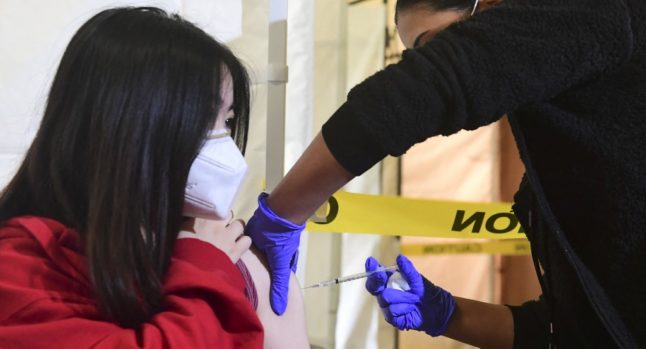In the United States, the Food and Drug Administration (FDA) is said to be approving Pfizer / Biontech vaccination for 12 to 15 year olds in the next few days, American media reported.
What about the approval of the vaccine for this age group in Switzerland?
“We are doing everything in our power to ensure that vaccination is also accessible for children and adolescents as soon as possible”, said Anne Lévy, director of the Federal Office of Public Health (FOPH).
The current, though still tentative, plan is to immunise children aged 12 to 16 from July and those under 12 from year-end. However, Christoph Berger, president of the Federal Commission for Vaccination Issues, said that he is not expecting approval for children under six before the spring of 2022.
After weeks of deliberation, the Swiss government confirmed in early June that children will be vaccinated from mid-July onwards.
Vaccinations will start at the age of 12 and will not require parental consent.
Why was there uncertainty about the timing of the inoculation programme for children?
That’s because vaccines for kids under the age of 12 have to be tested separately from those for adults, as children have a different immune response than older people, Watson news outlet reported.
A distinction also has to be made in regards to different age groups. For instance, children under five may react differently than older kids.
It is likely that children will simply be given a lower dose, but the exact quantity is still being researched.
So far, the Pfizer vaccine is the only one authorised for use in young people, but the company has not yet asked for approval to be used in Switzerland for that age group.
However, the approval process would be relatively quick and easy, according to Lukas Jaggi, a spokesperson for the drug authorisation agency, Swissmedic: Pfizer only has to apply for an extension of the already existing authorisation.
Why is it important to vaccinate children and adolescents?
Health experts believe that achieving herd immunity — with about 80 percent of the population developing antibodies to the virus — is only feasible if all age groups are vaccinated.
For Switzerland this means that 6.9 million people out of the total population of 8.6 million have to develop antibodies against the coronavirus either through vaccination or infection, though this proportion could increase with new mutations.
Children and young people make up 18 percent of the population.
READ MORE: Vaud first Swiss canton to start vaccinating all members of public



 Please whitelist us to continue reading.
Please whitelist us to continue reading.
In Valais they haven’t yet started vaccinating adults below 65 years old (unless they are at risk).
We can register to be informed when the appointment booking system will open to us, but not sign of it yet.
Yes, let’s get a few under 65 adults done first! Getting a little ahead of themselves.